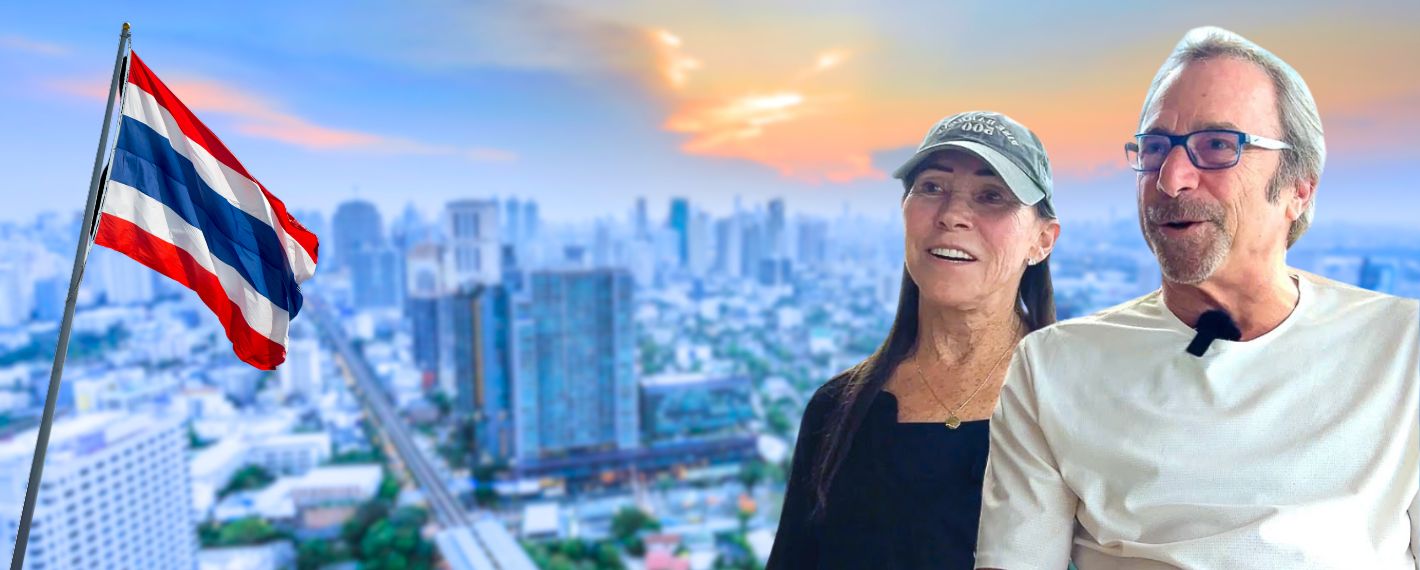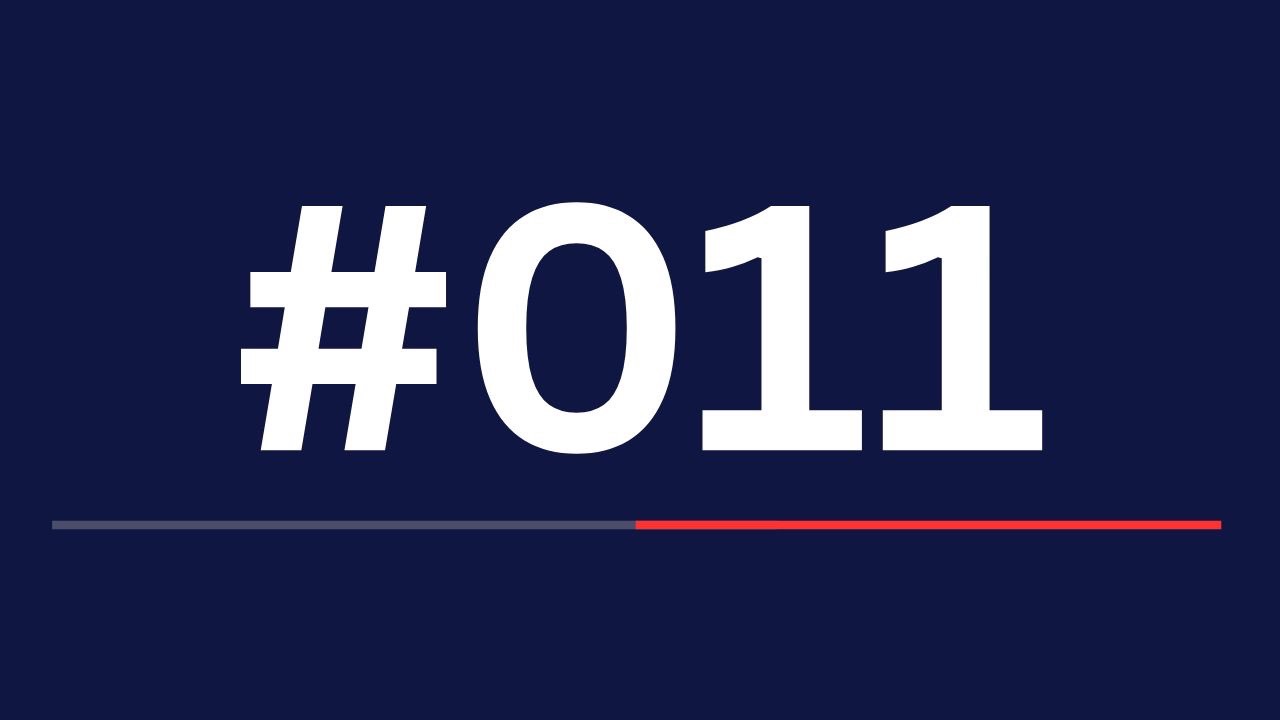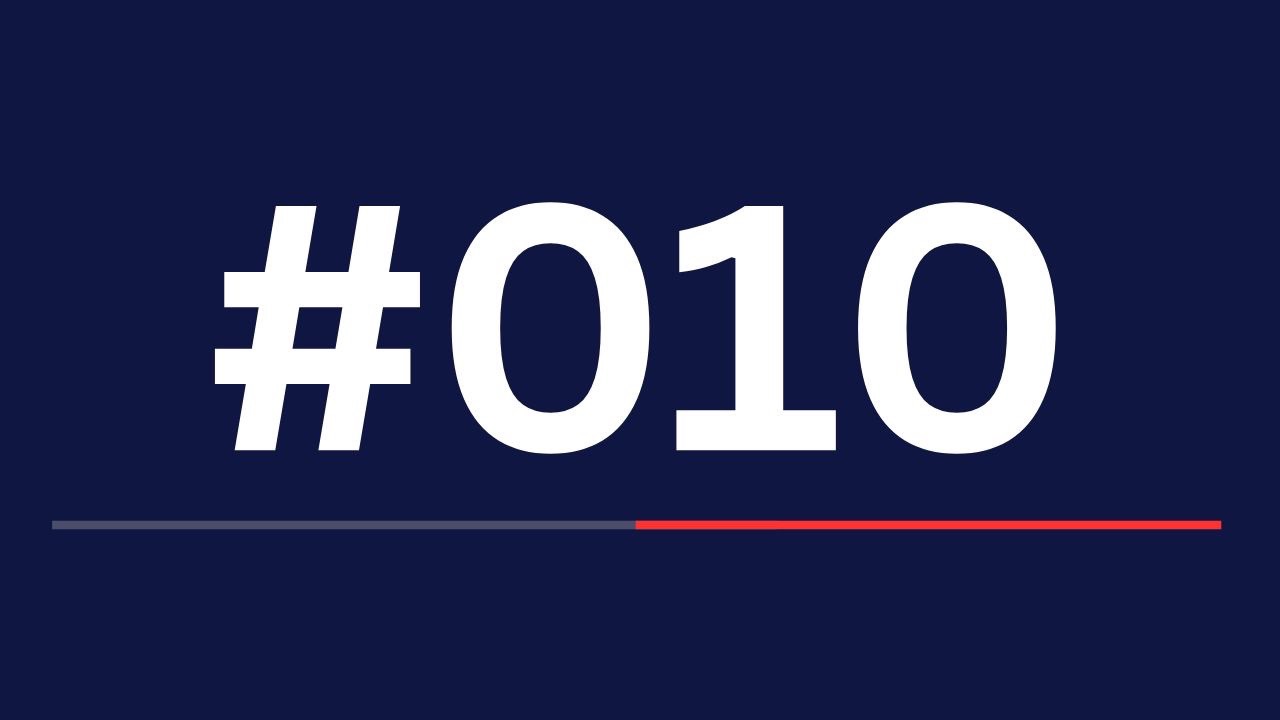They Skipped Florida. Retired to Bangkok. And Never Looked Back.

After decades of high-speed New York life and more than 45 years of marriage, Bob and Paula crafted a retirement most people only dream about. They swapped winters in the Hamptons for scooters in Sukhumvit, live jazz in Bangkok, and healthcare that actually works. Their story isn't just inspiring — it's useful. Because it shows what's actually possible when you stop settling and start designing your next chapter.
1) Meet Bob & Paula:
"We weren't looking to slow down. We were looking to live."
Bob and Paula are dyed-in-the-wool New Yorkers. Paula was one of just five women trading on the New York Stock Exchange floor in the '80s. Bob's career spanned accounting, management consulting, and later, tech sales. They kept a house in East Hampton after retirement, but Thailand had been on their radar for decades.
“The first time we were in Thailand was over 30 years ago,” Paula recalls. “As we got older, we knew we wanted to spend our winters somewhere warm — and it wasn’t going to be Florida.”
When retirement became real, they narrowed it down to Ho Chi Minh City or Bangkok. Bangkok won.
2) Why They Chose To Retire In The Big City Of Bangkok:
"When they put you in the box, you’ll have plenty of time for peace and quiet."
That’s how Bob explains their decision to retire in the middle of one of Asia’s most energetic cities. For them, Bangkok wasn’t a compromise. It was a culmination.
The city gave them everything: public transport, live music, diverse food, friendly people, and world-class hospitals. They originally planned to split time evenly between the U.S. and Thailand, but now spend about 9 months a year in Bangkok.
“We could see ourselves being here full-time,” Bob says. “If we hadn’t just finished a big renovation on our home in New York, we probably would be.”
3) How They Live & Why They Rent Instead Of Buying:
They didn’t downgrade their lifestyle. They preserved it.
Instead of buying property in Thailand, Bob and Paula ran the numbers. Renting made more financial sense.
“We earn more keeping our capital invested than we would by owning a condo here. The rent is less than the return,” Bob explains.
They live well. Dinners out every night. Street food lunches. Motorbike adventures upcountry. And the best part? You can do it all at different price points.
“There’s no badge for spending more,” Paula adds. “Some of the best meals we’ve had were 50 baht lunches from a cart.”
4) Their Thoughts On Thai Healthcare:
They didn’t just use the system. They stress-tested it.
Two days after moving in, Bob broke his toe. Weeks later, Paula had a motorbike accident and needed wrist surgery with pins. Since then, they’ve had back procedures, meniscus surgery, sinus surgery, and dental work ranging from implants to cosmetic veneers.
“The doctors here are top notch,” Bob says. “A lot of them trained in the States. The facilities are spotless. And they actually practice medicine — they’re not just checking boxes for insurance.”
Paula manages their insurance strategy: Medicare supplemental coverage from the U.S. for the first 60 days abroad, plus travel insurance through World Nomads.
“My wrist surgery cost $10,000 USD here. In the U.S.? It would’ve been three times that — minimum.”
5) Making Friends & Building A Community:
They didn’t join an expat club. They just followed their interests.
Bob rides motorcycles. Paula loves live music. Bangkok gave them both. Their network grew naturally — through jazz bars, motorbike shops, and shared experiences.
“Almost every expat here is like-minded. We all chose a unique lifestyle. That’s the starting point,” Bob says.
“We didn’t go looking for community,” Paula adds. “We lived our lives and community found us.”
They now split time between local Thai friends and fellow expats, often seeing both in the same day.
6) They Advice For Future Expats:
"You don’t get to make a big retirement mistake. Test things out first."
Bob and Paula advise would-be expats to come over and spend time in three areas: the north (like Chiang Mai), the city (Bangkok), and the islands. Don’t just visit — live like you would if you moved. Interact with services. Try the grocery runs. Learn the traffic patterns.
“We chose Bangkok because it's the best base in Southeast Asia for travel,” Paula says. “We can be in another country in a few hours, or in a jazz club in five minutes.”
“If you can retire and maintain your lifestyle, that’s when you do it,” Bob adds. “You won’t wish you spent more time in the office.”
7) Key Takeaways:
- Retirement isn’t about slowing down. It’s about designing your next chapter.
- Bangkok lets you live big or small — either way, it’s rich in experience.
- Thailand’s healthcare system delivers Western-quality care without Western-level stress.
- Community comes from interests, not Facebook groups.
- Don’t guess your retirement fit. Test-drive it.
If you're reading this and wondering, "Could I actually do this too?" — that's exactly what we help people figure out.
Whenever you're ready, there's 3 ways I can help you:
1. Get your Visa sorted without the stress: Your entire Thai visa application is handled from start to finish. No paperwork headaches, no Immigration office chaos. Whether you're retiring, working remotely, moving with your family, or starting a business, we get you approved quickly so you can focus on actually living here.
2. Learn Thai that actually sticks: Join Teacher Fah's Thai Language Challenge. A 100-day structured program that's already helped over 900 expats build real speaking skills they can use daily. If you'd like to see my progress after her 100-day challenge so you know what you can achieve, just watch this video here. Enrollment is limited to 50 students per cohort to ensure personal attention. If doors aren't open right now, you can join the waitlist for first access.





